Vladimir Uralsky
Nacimiento : 1887-08-27, Orenburg, Orenburg Governorate, Russian Empire [now Orenburg Oblast, Russia]
Muerte : 1955-05-15

A biographical film about the fate of the great Russian mechanic and creator of aerodynamics Nikolai Egorovich Zhukovsky.

Kirichenko
This is a dramatic story of the restoration of the mines after the liberation of Donbass from the Nazis during the Second World War.
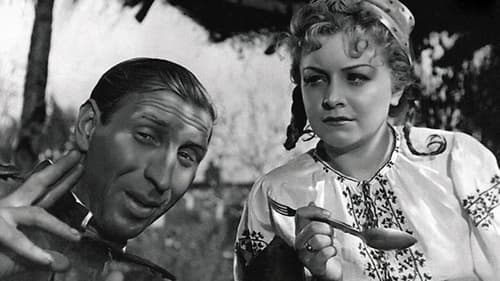
Gvozdaryov
A comedy about an army squad guarding the fake airport during WWII.

They met in Moscow - a shy swineherd Glasha and shepherd Musaib. Long and difficult will be their way to love and a new meeting in this classic Soviet musical comedy.

Fighter pilots Sergei and Nikolai test new planes together and try to beat each other in everything. Their rivalry began back in school, when both were passionate about the pretty classmate Varey. A tragic accident led Sergei to complete blindness. Varya, who has long loved him, has a difficult decision: to become a wife of a disabled person ...

Filipp Filippovich Burov - lighthouse keeper
О буднях морской пограничной заставы в середине 30-х годов. На маленьком тихоокеанском острове несет службу гарнизон пограничной охраны НКВД. Небольшой отряд бойцов мужественно защищает родную землю от нападения японских диверсантов и гонит прочь непрошенных гостей. Однажды японский эсминец высаживает десант на один из советских островов. Захватчикам помогают завербованные ими предатели. Но пограничники дают достойный отпор агрессору.

Aerograd is a 1935 Soviet film by Ukrainian director Olexander Dovzhenko, Mosfilm-VUFKU coproduction. It is a futuristic adventure story set in the Soviet Far East. Considered one of two sound masterpieces by Dovzhenko, the other being "Ivan".

Working with children led Barskaya to create superb direct sound and an inspired style of shooting. Don’t look for conventional cinematic syntax here. The film is chaotic in the way that Soviet films still knew how to be, and Langlois couldn’t help but be seduced by its rebellious spirit, its anarchy and love of children, comparable to Vigo’s Zero de conduite.
As well as being a film made with and for children, it offers a complex take on Western society. Pre-Nazi Germany is not named as such but is carefully reconstructed, possibly under advice from Karl Radek, and children offer a playful reflection of class struggle – doubly excluded, as proletarians and as minors. “They play in the same way that they live”, one intertitle says. The interaction between their comical games and the yet more ludicrous ones played by adults is developed on several levels.
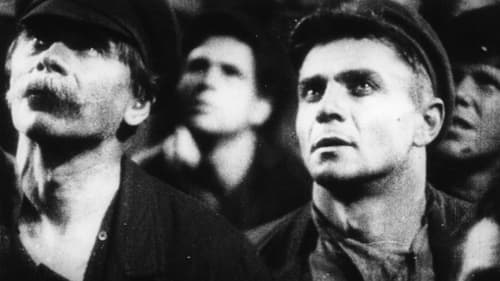
Outskirts is an internationally renowned masterpiece of early sound cinema. In a remote Russian village during World War I, colorful and nuanced characters experience divided loyalties: family loyalty vs. personal desire, nationalism vs. transcendent humanism.

Himself
Soviet film based on Dostoevsky's autobiographical novel of his prison experiences in Tsarist days.

The story of a British POW who converts to communism.
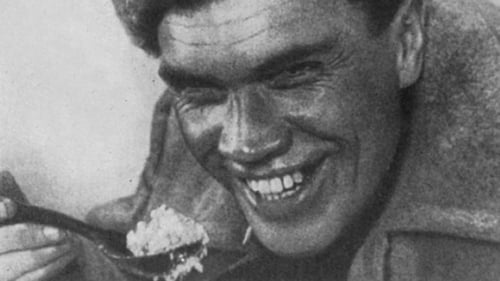
Para solucionar el problema de los chicos de la calle, fruto de los últimos años de la época zarista, el gobierno crea comunas donde son acogidos y viven sin vigilancia alguna. El oficial Nikolai Sergueiev y los muchachos de la comuna que dirige emprenden el proyecto de construir una vía ferroviaria.

Wounded soldier
As a response to criticism for the allegedly excessive “mass appeal” of his earlier epic STORM OVER ASIA (1928), Vsevolod Pudovkin unleashed his flair for experimentation in what was supposed to be the director’s first sound feature. Everything went wrong: technical problems forced him to complete the film as a silent; viewers were baffled by the lack of a recognizable plot; then, the ideological climate of the Soviet Union changed. He was now being blamed for catering to bourgeois taste! Time has come to set the record straight. Here’s lyrical cinema at its best, deliberately operatic and yet intimate as it matches the characters’ inner life with the solemn rhythms of nature, and depicted through breathtaking black-and-white photography. A sensation at last year’s Pordenone fest, Pudovkin’s long-forgotten swan song to the art of montage is resurrected by Gabriel Thibaudeau’s emotionally charged live music performance. –PCU (USSR, 1930, 75m)
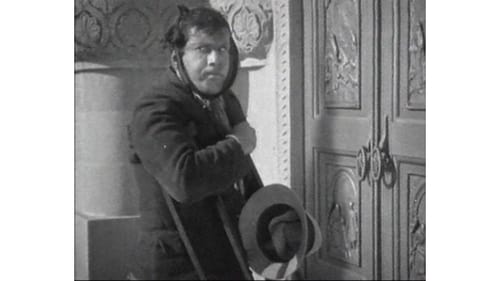
Guide (as V. Uralsky)
The priests, stock market officials, and police conspire to squeeze income out of pilgrims come to see relics of a Christ like figure. A pair of con men try to pass of a resurrected saint.

Zakhar
Ukrainian agitprop film from 1929 that was banned and long forgotten until its rediscovery in the 1970s, imaginatively shot by the gifted cameraman Oleksii Pankratiev, whose panoramic long shots feature dynamic compositions. The background, barren field and bare sky, raise the agricultural subject matter to the level of an epic poem. Using innovative editing, Shpykovskyi transformed an incredibly simple plot into an avant-garde work. Created the same year as Earth (Zemlya), the film forms a paradoxically conceptual, ideological, and aesthetic pair with Dovzhenko’s movie.

The village youth organize a collective farm in the place of the monastery garden.

Employee
Two young women fight over the love of a hunter.

Naturally, the circus milieu of 2 Buldy 2 (1929) encourages stunts. A father and son, both clowns, are to perform together for the first time, but the civil war separates them, and the elder Buldy, tempted for a moment to acquiesce to the White forces, casts his lot with the revolution. At the climax Buldy Jr. escapes the Whites thanks to flashy trampoline and trapeze acrobatics; the gaping enemy soldiers forget to shoot.

Life is short and full of oppression, but that doesn't mean Parasha can't find love and laughter when she leaves her country home to take a job as a maid in the overcrowded, overworked, and underpaid world in the big city.

Peasant
The momentous film stars Mykola Nademskyi as the grandfather of Tymish (Semen Svashenko), whom he alerts to secret treasure buried in the mountains of Zvenygora – Treasure that rightfully belongs to his homeland. The film wonderfully blends both lyricism and politics and uses its central construct to build a montage praising Ukrainian industrialization, attacking the bourgeoisie, celebrating the beauty of the Ukrainian steppe and retelling ancient folklore. Said Sergei Eisenstein of the film, "As the lights went on, we felt that we had just witnessed a memorable event in the development of the cinema".

During the Civil War following the Bolshevik Revolution, a Red cavalry officer is warned by a staffer from headquarters about his dangerous attraction to the female leader of a band of Cossacks, a violent woman who is aroused by killing.
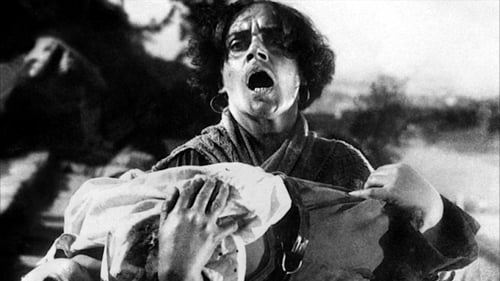
Basada en hechos reales ocurridos en 1905, narra como la tripulación del acorazado Príncipe Potemkin de Táurida se cansan del tratamiento vejatorio e injusto de los oficiales. El detonante de la situación es la carne podrida que éstos quieren que los marineros se coman. Con este motín comienza el reguero revolucionario por Odesa y toda Rusia.

A small town postal official allows a military officer to take his lovely daughter away to St. Petersburg, assuming the man will do the right thing and marry her.Instead, a future of scandal and tragedy await her.
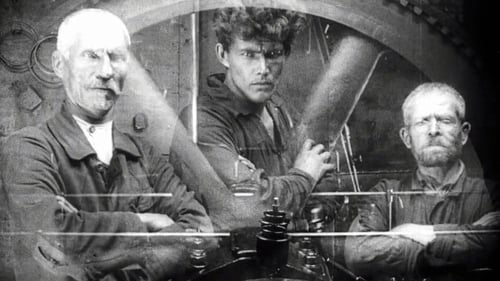
Rusia zarista. Los obreros de una importante empresa están descontentos y, después de una reunión, deciden ir a la huelga. El director de la empresa informa de la situación a los responsables políticos y éstos envían a la policía para abortar la huelga. La tensión se dispara cuando un obrero se suicida al ser acusado injustamente de un robo.

Union Man
A 1925 Soviet comedy sponsored by the Soviet Finance Ministry, with a plot promoting the new economy. A small-town tailor, Petya Petelkin (Ilyinsky), bought a lottery ticket and handed it to his landlord, widow Shirinkina (Deykun) who wants to marry him. Petya is a hard-working tailor trying to start his own business. He is also in love with Katya (Maretskaya), whom he wants to marry. He has to survive a cascade of funny situations in the unstable Soviet reality, before his romance with Katya comes to a happy ending.

Soldier
Adaptación de una novela del conde Alexei Tolstoi, pariente lejano de León Tolstoi. Aelita, la reina de Marte, harta de vivir sometida a su despótico padre, lanza una llamada de socorro a la Tierra. Tras descifrar el mensaje, el ingeniero de la Estación de Radio de Moscú, al que se une el revolucionario Gusev, emprende un viaje a Marte en la nave que ha construido. Los dos ayudan a Aelita a derrocar al tirano, pero, a continuación, también ella implanta un régimen totalitario.





















